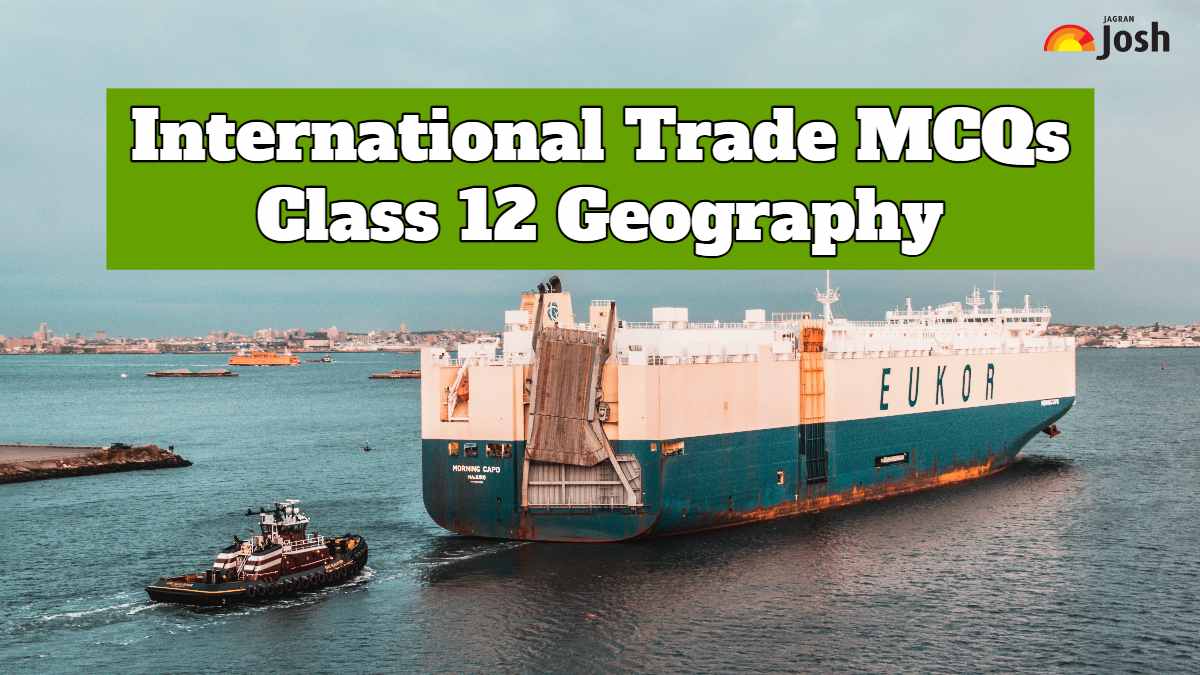International Trade Class 12 MCQs: The CBSE Class 12 International Trade MCQs offer students an amazing assessment tool for understanding the complexities of global commerce. Covering various aspects like the balance of trade, exchange rates, and trade policies, these multiple-choice questions allow students to develop a comprehensive grasp of international economic principles. The international trade Class 12 MCQs provided here follow the CBSE curriculum. These International Trade MCQ questions challenge students to apply theoretical knowledge to real-world scenarios, honing critical-thinking skills. Check and download the International Trade Class 12 MCQ with answers file from below.
CBSE International Trade Class 12 MCQs
Q1. Fifteenth century onwards, the European colonialism began and along with trade of exotic commodities, a new form of trade emerged which was called
a) Silk Road trade
b) Slave trade
c) Triangle Trade
d) Spice Trade
Q2. Which of the following is not a basis of international trade?
a) Difference in National Resources
b) Population Factor
c) Economic Development
d) None of the above
Q3. Which of the following are the types of international trade?
a) Bilateral trade
b) Multilateral trade
c) Slave trade
d) Both a and b
Q4. World Trade Organisation was formed on
a) January 1, 1996
b) January 1, 1995
c) January 1, 1999
d) January 1, 1994
Q5. World Trade Organisation earlier known as the
a) General Agreement for Tariffs and Trade (GATT)
b) General Arrangement for Tariffs and Trade (GATT)
c) General Allowance for Tariffs and Trade (GATT)
d) General Authority for Trade and Tariffs (GATT)
Q6. Which one of the following continents has the maximum flow of global trade?
a) Asia
c) Europe
b) North America
d) Africa
Q7. Choose the right answer from the four alternatives given below. (i) Most of the world’s great ports are classified as:
a) Naval Ports
c) Comprehensive Ports
b) Oil Ports
d) Industrial Ports
Q8. The initial form of trade in primitive societies was called
a) Primitive system
b) Exchange system
c) Barter system
d) None of the above
Q9. Which of the following places still follow the barter system?
a) Jagiroad, Guwahati
b) Panikhaiti, Guwahati
c) Both a and b
d) None of the above
Q10. Which factor is not considered in the calculation of the Balance of Trade?
a) Exports of goods
b) Imports of goods
c) Services trade
d) Government expenditures
Answer Key
- b) Slave trade
- d) None of the above
- d) Both a and b
- b) January 1, 1995
- a) General Agreement for Tariffs and Trade (GATT)
- a) Asia
- c) Comprehensive Ports
- c) Barter system
- a) Jagiroad, Guwahati
- d) Government expenditures
Also Read:



